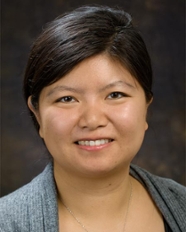2025 Pilot & Feasibility Grant Awardees
Current Awardees
Xiaomin Bao, PhDAugmented Cellular Responses to Mechanical Stress in Exacerbating Epidermolytic lchthyosis Severity

PI: Xiaomin Bao, PhD, Associate Professor of Molecular Biosciences
Edward Li MD, PhDIntegration and Decomposition of Omics Data for Inflammatory Hair Loss Disorder Diagnostics

PI: Edward Li MD, PhD, Postdoctoral Fellow of Dermatology
Susan E Quaggin, MDEpigenetic reprograming of hair follicle stem cells in reversible hair loss model
Epigenetic reprograming of hair follicle stem cells in reversible hair loss model
